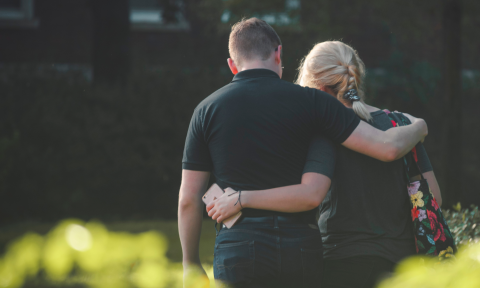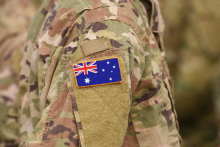I think my partner gambles too much – how would I know?

Are you worried about your partner’s gambling?
You might feel like they’re gambling too much, or maybe their gambling has started to impact your relationship.
The signs of gambling harm aren’t always obvious because gambling can be easier to hide than alcohol and drug use, for example.
It can be hard to know whether someone’s gambling has become an issue for them, especially if they’re trying to hide the extent of their gambling from you and others.
It can be a sensitive topic for any couple, but particularly sensitive or even dangerous to raise in relationships involving domestic and family violence.
In this blog post, we explore some of the signs of gambling harm and options if you’re worried about your partner’s gambling.
If you’re experiencing abuse in your relationship, know that help is available. Call 1800 RESPECT on 1800 737 732. If you or someone you know is in immediate danger, please call 000.
Gambling Help Queensland provides support for anyone impacted by gambling harm. Call the 24/7 helpline on 1800 858 858.
Signs Your Partner’s Gambling Might be an Issue
With the rise in gambling apps and online gambling, signs of unsafe gambling can look more subtle than spending lots of time at the local TAB or pokies.
The signs of gambling harm aren’t always directly related to money.
When someone is gambling too much, they can develop changes to their mood and behaviours, and this can become destructive to their lives and to the people around them – from partners and family to friends and colleagues.
It’s important to remember that the following signs of gambling harm don’t necessary mean gambling is the cause - they may indicate other underlying issues. Keep this in mind if you’re looking to address these signs with your partner, as you may uncover other causes.
Financial signs:
- Lying or acting secretive about financial records or payslips and how much they’re spending on gambling
- Money missing from joint accounts without explanation
- Money missing from money jars, wallets, etc.
- Unpaid bills
- Regularly borrowing money or taking out loans
- Regularly short on money, even when they earn a liveable wage
Behavioural signs:
- Being preoccupied with gambling, such as spending time on betting apps or talking about gambling
- Planning activities around gambling
- Changes in personality – sleeping, eating, or sexual relationship patterns
- Being sensitive around the topic of gambling, for example getting angry or wanting to avoid talking about gambling when it is brought up
- Taking an unusual amount of time to run simple errands
- Disappearing for hours and not answering their phone (especially on payday)
- Being late or not turning up for commitments
Emotional signs:
- Changes in moods (e.g. low mood, worried, frustrated)
- Arguing with loved ones
- Becoming withdrawn from friends and family
- Reporting feeling down or suicidal
- Restless or irritable if having to cut down or partake in non-gambling activities
Impacts of Gambling on Relationships
Gambling has serious negative impacts on the person gambling and the people around them – especially intimate partners and family.
Research shows family members experiencing gambling harm can experience emotional and physical health issues as a result.
Gambling harm within the family can lead to:
- Impaired family relationships
- Emotional difficulties
- Communication breakdown
- Broken trust
- Domestic violence
- Financial issues
- Separation and divorce.
The impact of a partner’s gambling can be painful and can sometimes take over our lives. It’s important to look after yourself and not place blame on yourself or your partner.
If you’re experiencing abuse in your relationship, there are several support options available 24/7. Call 1800 RESPECT on 1800 737 732 for free, confidential support.
If you or someone you know is in immediate danger, please call 000.
Gambling Help Queensland offers free, confidential 24/7 support and advice. We assist people who gamble and anyone affected by someone else’s gambling. We can also provide information and referral to a range of other support services where required. Call 1800 858 858 or learn more here.
Seeking Help for Gambling Harm
It’s common for partners of people who gamble to feel hurt, stressed, anxious, and even angry. It’s also common for them to try everything they can to make their partner stop.
Knowing the common risk factors for gambling harm may help increase your understanding around why your partner gambles.
This might include growing up around parents who gamble and normalise gambling, suffering from trauma, or experiencing mental health issues and/or addictions. You can learn more about why people gamble in this blog post.
Seeking professional support and advice can be an important step. Our experienced counsellors can help unpack any questions about gambling harm, ways to look after yourself, and even tips to protect yourself financially.
Seeking help early leads to better outcomes. It’s never too early to seek help if you’re worried about your partner’s gambling. Sharing your concerns with someone you trust is a good place to start. This may make it easier to think about your next steps, which may include reaching out to a professional.
If you’re having a hard time with the impacts of your partner’s gambling, free, confidential, and culturally appropriate help is available. We’re here for you and will work with you at your own pace.
You can talk to a counsellor by calling the 24/7 helpline on 1800 858 858.
We offer more advice to look after yourself here: Support for Partners and Families | Gambling Help QLD
Contact us
If gambling is impacting your life or a loved one's life, it's okay to reach out for help. It’s free and confidential.
Call the 24/7 Gambling Helpline on 1800 858 858
Face-to-face counselling locations




